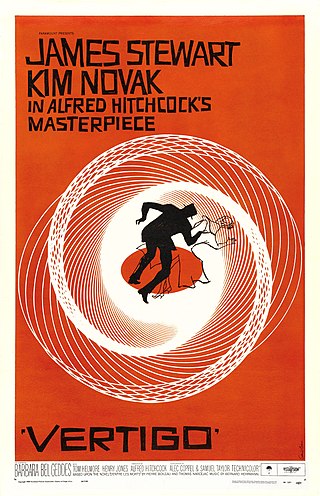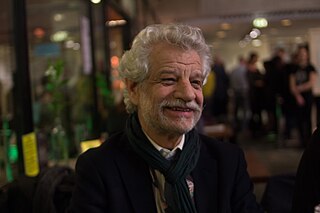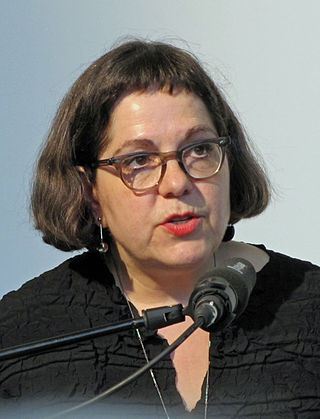Related Research Articles

Sir Alfred Joseph Hitchcock was an English film director. He is widely regarded as one of the most influential figures in the history of cinema. In a career spanning six decades, he directed over 50 feature films, many of which are still widely watched and studied today. Known as the "Master of Suspense", Hitchcock became as well known as any of his actors thanks to his many interviews, his cameo appearances in most of his films, and his hosting and producing the television anthology Alfred Hitchcock Presents (1955–65). His films garnered 46 Academy Award nominations, including six wins, although he never won the award for Best Director, despite five nominations.
Andrew Sarris was an American film critic. He was a leading proponent of the auteur theory of film criticism.

Rear Window is a 1954 American mystery thriller film directed by Alfred Hitchcock and written by John Michael Hayes based on Cornell Woolrich's 1942 short story It Had to Be Murder. Originally released by Paramount Pictures, the film stars James Stewart, Grace Kelly, Wendell Corey, Thelma Ritter, and Raymond Burr. It was screened at the 1954 Venice Film Festival.

Vertigo is a 1958 American psychological thriller film directed and produced by Alfred Hitchcock. The story was based on the 1954 novel D'entre les morts by Boileau-Narcejac, with a screenplay by Alec Coppel and Samuel A. Taylor. The film stars James Stewart as a former San Francisco police detective who has retired after an incident in the line of duty caused him to develop an extreme fear of heights, accompanied by vertigo. He is hired as a private investigator to report on the strange behavior of an acquaintance's wife.
John Russell Taylor is an English critic and author. He is the author of critical studies of British theatre; of critical biographies of such figures in film as Alfred Hitchcock, Alec Guinness, Orson Welles, Vivien Leigh, and Ingrid Bergman; of Strangers in Paradise: The Hollywood Emigres 1933–1950 (1983); and several books on art.
Raymond Durgnat was a British film critic, who was born in London to Swiss parents. During his life he wrote for virtually every major English language film publication. In 1965 he published the first major critical essay on Michael Powell, who had hitherto been "fashionably dismissed by critics as a 'technician's director'", as Durgnat put it.
Jack Sullivan is an American literary scholar, professor, essayist, author, editor, musicologist, concert annotator, and short story writer. He is a scholar of the horror genre, Alfred Hitchcock, and the impact of American culture on European music.

Robert Paul "Robin" Wood was an English film critic and educator who lived in Canada for much of his life. He wrote books on the works of Alfred Hitchcock, Howard Hawks, Satyajit Ray, Ingmar Bergman, Michelangelo Antonioni, and Arthur Penn. Wood was a longtime member—and co-founder, along with other colleagues at Toronto's York University—of the editorial collective which publishes CineACTION!, a film theory magazine. Wood was also York professor emeritus of film.

Alfred Hitchcock (1899–1980) was an English director and filmmaker. Popularly known as the "Master of Suspense" for his use of innovative film techniques in thrillers, Hitchcock started his career in the British film industry as a title designer and art director for a number of silent films during the early 1920s. His directorial debut was the 1925 release The Pleasure Garden. Hitchcock followed this with The Lodger: A Story of the London Fog, his first commercial and critical success. It featured many of the thematic elements his films would be known for, such as an innocent man on the run. It also featured the first of his famous cameo appearances. Two years later he directed Blackmail (1929) which was his first sound film. In 1935, Hitchcock directed The 39 Steps; three years later, he directed The Lady Vanishes, starring Margaret Lockwood and Michael Redgrave.

George Tomasini was an American film editor, born in Springfield, Massachusetts, who had a decade long collaboration with director Alfred Hitchcock, editing nine of his movies between 1954 and 1964. Tomasini edited many of Hitchcock's best-known works, such as Rear Window (1954), Vertigo (1958), North by Northwest (1959), Psycho (1960), and The Birds (1963), as well as other well-received films such as Cape Fear (1962). On a 2012 listing of the 75 best edited films of all time, compiled by the Motion Picture Editors Guild based on a survey of its members, four films edited by Tomasini for Hitchcock appear. No other editor appeared more than three times on this listing. The listed films were Psycho, Vertigo, Rear Window, and North by Northwest.
Alfred Hitchcock's films show an interesting tendency towards recurring themes and plot devices throughout his life as a director.

Murray Pomerance is an independent Canadian film scholar and author living in Toronto, Ontario, Canada, and adjunct professor in the School of Media and Communication at RMIT University, Melbourne.

Thomas Elsaesser was a German film historian and professor of Film and Television Studies at the University of Amsterdam. He was also the writer and director of The Sun Island, a documentary essay film about his grandfather, the architect Martin Elsaesser. He was married to scholar Silvia Vega-Llona.

David Sterritt is a film critic, author and scholar. He is most notable for his work on Alfred Hitchcock and Jean-Luc Godard, and his many years as the Film Critic for The Christian Science Monitor, where, from 1968 until his retirement in 2005, he championed avant garde cinema, theater and music. He has a Ph.D. in Cinema Studies from New York University and is the Chairman of the National Society of Film Critics.
James Dudley Andrew is an American film theorist. He is R. Selden Rose Professor Emeritus of Film and Comparative Literature at Yale University, where he has taught since the year 2000. Before moving to Yale, he taught for thirty years at the University of Iowa. Andrew has been called, on the occasion of one of his invited lecture series, "one of the most influential scholars in the areas of theory, history and criticism". He particularly specializes in world cinema, film theory and aesthetics, and French cinema. He has also written on Japanese cinema, especially the work of Kenji Mizoguchi. He has been awarded a Guggenheim Fellowship and was named a Commandeur in the Ordre des Arts et des Lettres by the French Ministry of Culture, its highest distinction. In 2006, he was elected a Fellow of the American Academy of Arts and Sciences. In 2011, he received the Society for Cinema and Media Studies Distinguished Career Achievement Award. Dudley Andrew studied English and Philosophy, then learned filmmaking before getting in on the ground floor just as Film Studies was taking off in the USA. After more than 50 years as a teacher and scholar, he has directed the dissertations of many of today’s leaders in Film studies, and his books have been widely translated, including into French, Spanish, Portuguese, Chinese, Korean, Arabic, Persian, Turkish, Serbo-Croatian, and Polish.
This is a bibliography of books by or about the director and actor Orson Welles.

Elisabeth Bronfen is a Swiss/German/American literary and cultural critic and academic. She is a professor emerita and former chairholder for English literature at the University of Zurich as well as a global distinguished professor at New York University. Her research interests include 19th- and 20th-century American and British literature, gender studies, psychoanalysis as well as the intersection and interaction between different cultural media.

William Rothman is an American film theorist and critic. Since receiving his Ph.D. in philosophy from Harvard University in 1974, he has authored numerous books, including Hitchcock: The Murderous Gaze (1982), The “I” of the Camera: Essays in Film Criticism, History and Aesthetic (1988), and Tuitions and Intuitions: Essays at the Intersection of Film Criticism and Philosophy (2019). He was "part of a modern wave of thinkers to apply questions of philosophy to the medium of movies" during the 1980s, and his work contributed to the emergence of the sub-discipline that has come to be known as “film-philosophy.” Rothman has also written on aspects of film theory and on the writings of Stanley Cavell, an American philosopher who made film a major focus of his work. He is currently Professor of Cinematic Arts in the School of Communication at the University of Miami.
Robert Phillip Kolker is an American film historian, theorist, and critic. He has authored and edited a number of influential books on cinema and media studies. He is a Professor Emeritus at the University of Maryland, College Park.
References
- ↑ "Faculty Profiles, English Department". Rutgers, The State University of New Jersey. 2008. Archived from the original on 2008-05-11. Retrieved 2008-05-15.
- ↑ Konczal, Eddie F. "Belton, John". english.rutgers.edu. Retrieved 2023-09-30.
- ↑ "Awards and Recognitions, English Department". Rutgers, The State University of New Jersey. 2008. Archived from the original on 2008-07-19.
- ↑ Belton, John (2002). Alfred Hitchcock's Rear Window. Cambridge University Press. p. 1.
{{cite book}}: CS1 maint: location missing publisher (link)